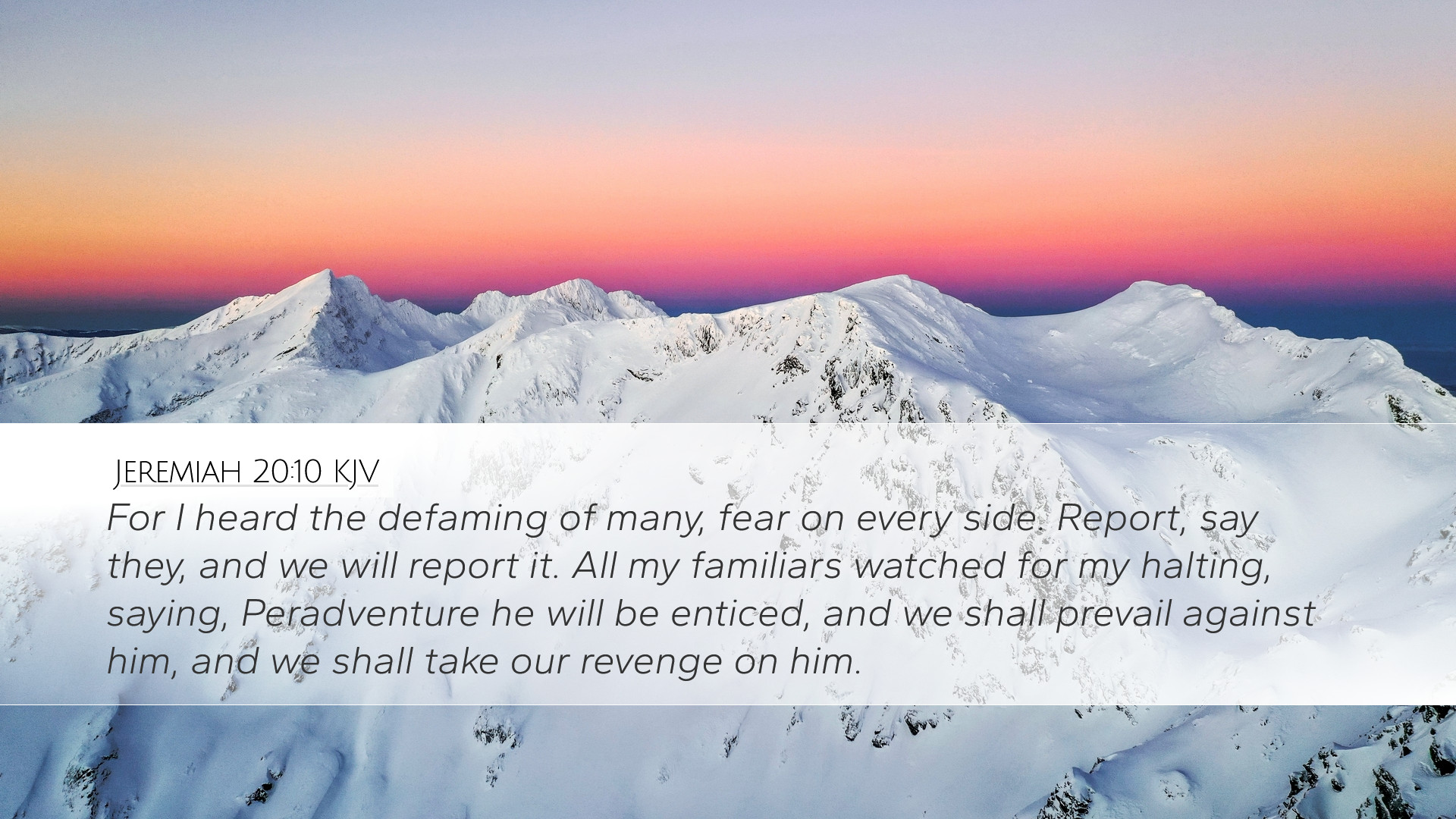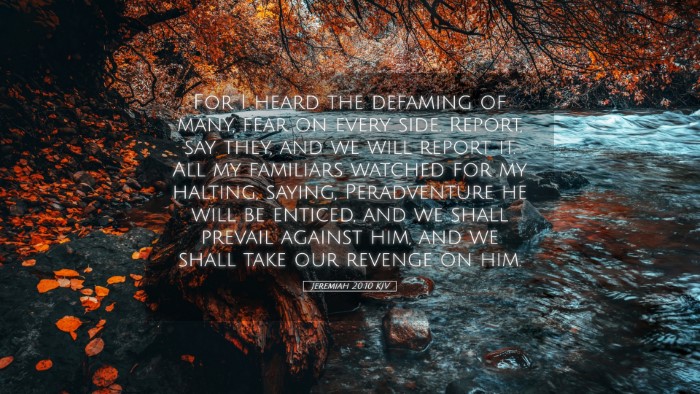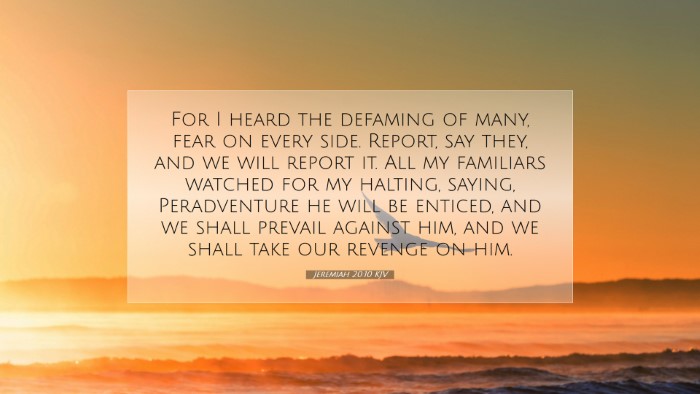Commentary on Jeremiah 20:10
Verse: "For I heard the defaming of many, fear on every side. Report, say they, and we will report it. All my familiars watched for my halting, saying, Peradventure he will be enticed, and we shall prevail against him, and we shall take our revenge on him." (Jeremiah 20:10, KJV)
Introduction
This verse stands as a poignant reflection of the prophet Jeremiah's struggles and the immense pressure he faced as a mouthpiece for God. The expression of fear and betrayal reveals the deep social and emotional turmoil that marks his prophetic mission. Jeremiah’s lament resonates with anyone who has faced opposition or misunderstanding due to their conviction or calling.
Contextual Analysis
In the broader context of Jeremiah’s ministry, this verse emerges amid prophetic declarations regarding the impending doom of Judah and warnings against false security. This section illustrates a turning point, showcasing not only the external opposition Jeremiah faced but also the tremendous burden of bearing divine messages that often put him at odds with his own community.
Public Rejection and Personal Despair
Jeremiah's use of the phrase "fear on every side" indicates a profound sense of isolation. Commentators like Matthew Henry emphasize that the multitude’s condemnation reflects a broader societal heart that resists divine truth:
- “The testimony of the true prophet is often met with scorn, and thus Jeremiah becomes the target of public disdain.”
- “He was not only facing threats from the officials and priests but felt abandoned by his friends.”
Insight from Matthew Henry
Henry elaborates on Jeremiah's lamentation by highlighting the psychological war: “This is the prophet’s complaint, that he saw a cloud of malice gathering against him. The defamation becomes a weapon used by those who opposed God’s truth.” He poignantly notes that:
- “What could be more agonizing for a servant of the Lord than to feel the weight of betrayal from familiar faces?”
- “In his moments of vulnerability, he highlights a universal truth: prophets often feel forsaken when proclaiming unpopular messages.”
Insight from Albert Barnes
Albert Barnes provides crucial observations regarding the communal pressure Jeremiah experienced. He notes:
- “The phrase 'report, say they, and we will report it' signifies the malicious gossip that surrounded him; it demonstrates how quickly words can turn into instruments of oppression.”
- “Barnes posits that such defamation is a common tactic used to discourage those who stand firm in their convictions.”
He also suggests that the “watching for halting” reflects a malicious intent among his peers, underlining their desire to witness his moral downfall.
Insight from Adam Clarke
Adam Clarke offers another dimension of interpretation, suggesting that the communal pressure and betrayal highlighted in this verse serve as a prophetic sign in themselves:
- “In this aspect, the struggle of Jeremiah illustrates the spiritual warfare every believer encounters.”
- “The verse speaks to the human experience of feeling overwhelmed; it reflects the deep internal conflict faced by faithful believers among hostile surroundings.”
Clarke indicates that the strategy of undermining a prophet's character can come from those they trust the most, illustrating the painful reality of prophetic ministry.
Theological Implications
This verse encapsulates significant theological themes related to suffering, betrayal, and faithfulness in ministry. It prompts reflection on how to sustain faith amidst slander and opposition. Every believer must grapple with the question of how to maintain integrity when society’s values are at odds with God’s directives.
Application for Today’s Believers
For contemporary pastors, theologians, and students, Jeremiah 20:10 serves as a reminder of the cost of discipleship. As believers seek to speak truth in a world that often craves comfort, they can draw strength from Jeremiah’s resilience amidst adversity. It challenges leaders to support one another, especially those in ministry who feel isolated or attacked.
Conclusion
Jeremiah 20:10 not only illustrates the prophet’s personal anguish but also serves as a mirror reflecting the challenges faced by all who strive to be faithful in an unfaithful world. The insights provided by Matthew Henry, Albert Barnes, and Adam Clarke remain relevant as they articulate the deep struggle between prophetic integrity and societal pressures. May this verse encourage us to stand firm in our convictions, knowing that we do not suffer alone.


